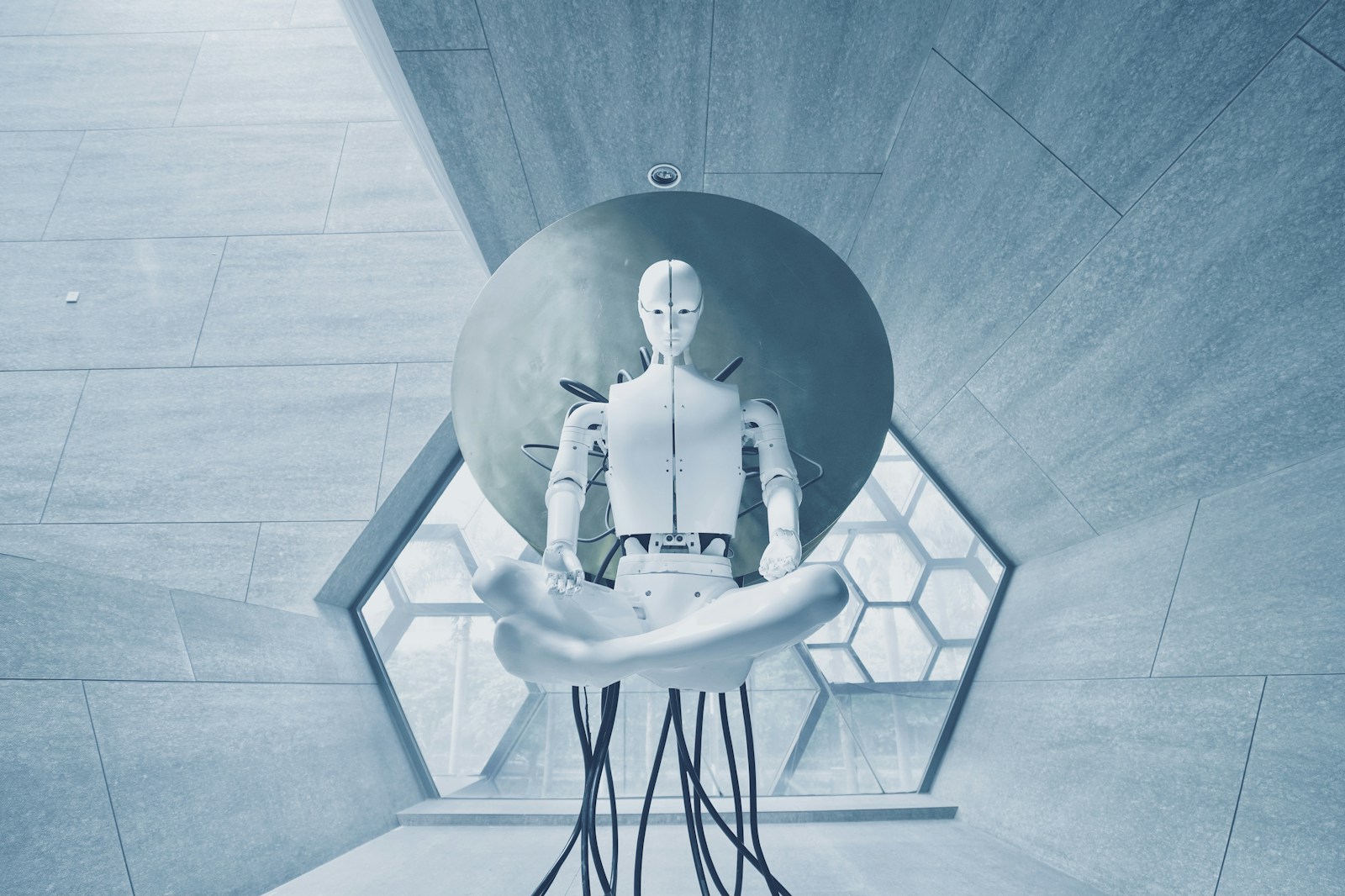
Photo by Aideal Hwa on Unsplash
Tesla Prepares for Optimus Robot Production
January 25, 2024
Get ready — the world might be on the brink of a futuristic shift as Tesla plans to mass produce its Optimus humanoid robots. The renowned electric vehicle and artificial intelligence company, Tesla, is rapidly expanding its workforce in Palo Alto, a strong indication of its ambitious production plans.
As early as 2021, Tesla dropped quite a bomb by revealing its plan to manufacture humanoid robots. This might have sounded straight out of a sci-fi flick, as humanoid robots in reality are still a developing concept. Yet, Tesla sped through the process and within two years had already developed the second generation of the Optimus bot.
Why a humanoid robot, you ask? Consider Elon Musk’s grand vision for humanity’s future — a multi-planetary life. The prospect of existence on Mars isn’t rosy, but robust robots could significantly ease the hurdles, performing tough tasks like terraforming and constructing life-supporting facilities. Moreover, these humanoid robots could be quite handy on Earth too, taking over heavy-duty and monotonous chores.
Tesla envisions the Optimus bots in its gigafactories, doing the risky and complicated jobs instead of humans. It’s a daunting thought, but it’s potentially happening faster than we can fathom. Speculations are brewing that Tesla could initiate mass production of the Optimus bot by year-end.
The company is hunting talent at its Palo Alto research center, with numerous job openings pointing toward the Tesla bot program. Several job descriptions indicate the successful candidate will be expected to work on high-volume mass production. The emphasis on creating a “high-volume production line” and reaching “full-scale production” strongly hints at Tesla’s upcoming Optimus production line.
https://twitter.com/TeslaBoomerMama/status/1746757343650754764?ref_src=twsrc%5Etfw%7Ctwcamp%5Etweetembed%7Ctwterm%5E1746757343650754764%7Ctwgr%5E5821fb024ab72db0d889c306412cbfbfea5980c3%7Ctwcon%5Es1_&ref_url=https%3A%2F%2Fwww.autoevolution.com%2Fnews%2Ftesla-is-hiring-engineers-for-optimus-bot-mass-production-thousands-of-robots-planned-227646.html
This year, we might witness a completed production line and more advanced versions of the Optimus bot. Nevertheless, this rapid hardware production does have its risks.
Just like with cars, manufacturing a robot is only half the battle, as Tesla well knows. The robots need software to function, and designing this software is no easy feat. The Optimus bot operates using vision-based neural networks, which help it interact with its environment. There is a profound link between Tesla’s Full Self-Driving and the Optimus bot programs.
Given that the self-driving program needs further improvement, Tesla is likely not eager to mass-produce soulless robots. Consequently, Tesla needs to crack self-driving for its cars before it can produce Optimus robots in volume. The bots would then effectively use the successful self-driving software as their brain and heart.
It’s safe to say, the robot revolution is just around the corner, and it brings with it some exciting times ahead.
Recent News
Premium and Healthier Food Options Gain Traction
As consumers become more mindful of their spending, the global sales of cooking ingredients and meals saw a notable increase of 4.4% in 2023, driven by inflation and higher commodity prices, according to Euromonitor International. This trend underscores a shift in consumer behavior towards more economical choices while still showing a preference for premium, healthier, and environmentally sustainable options.
Dairy Manufacturers Inc. Issues Voluntary Recall of Baby Formula
In a significant move, Dairy Manufacturers Inc., a Texas-based company, has initiated a voluntary recall of several baby formula products after they were found to be noncompliant with U.S. Food and Drug Administration (FDA) regulations. The recall encompasses all lot codes of three specific products: Crecelac Infant 0-12, Farmalac 0-12, and Farmalac 0-12 Low Lactose. This announcement was officially published on the FDA’s website on Saturday.
Fitness Equipment to Become $18.4 Billion Market
The global fitness equipment market is projected to reach $18.4 billion by 2033, growing at a CAGR of 3.02% from 2024 to 2033, according to Allied Market Research. Key drivers include the integration of Internet of Things (IoT) technology in fitness devices and the rise of corporate wellness programs. IoT-enabled equipment captures workout metrics in real time, enhancing user engagement and offering personalized insights. Corporate wellness initiatives promote physical activity in the workplace, increasing demand for fitness equipment in corporate gyms.
Walmart Ends Partnership with Capitol One
Walmart has officially ended its consumer credit card agreement with Capital One, marking a significant shift in the retail giant’s financial partnerships. This decision follows a series of disputes over customer service issues that culminated in a legal battle and a federal judge’s ruling.

